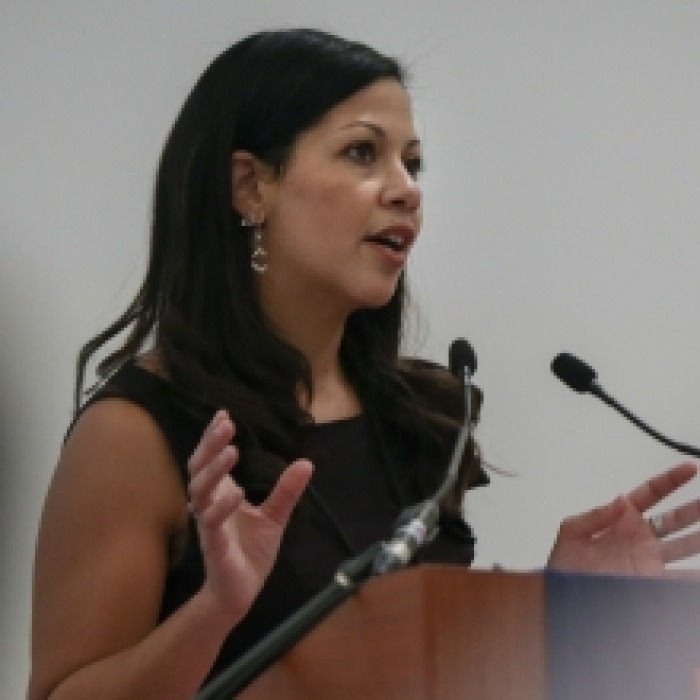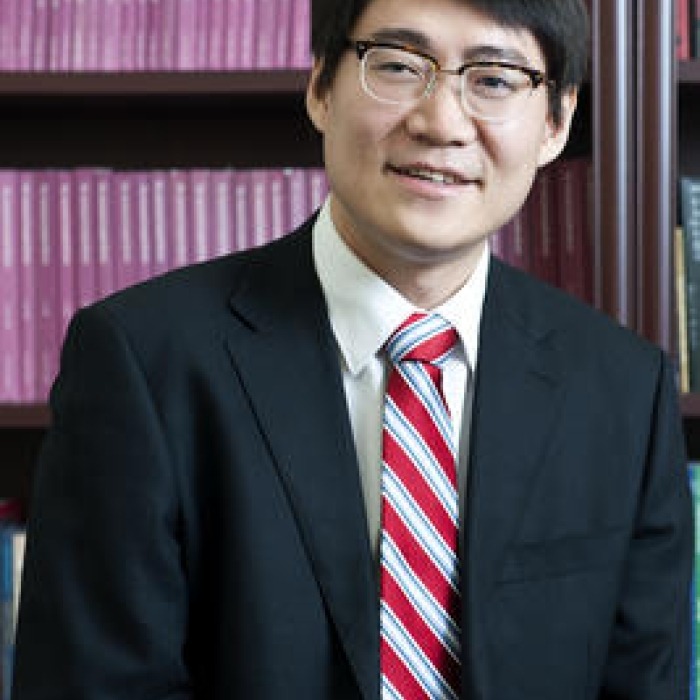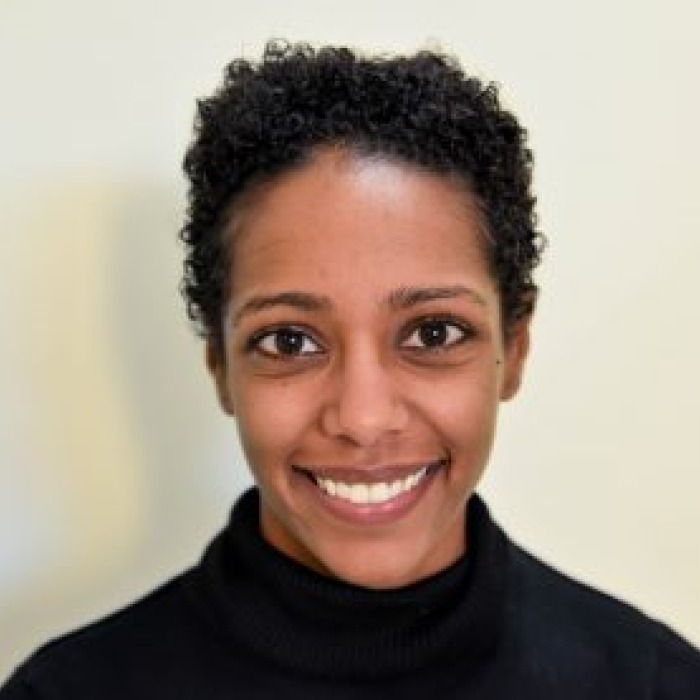
Aycan Katitas
University of Virginia
Campaigning for Protectionism: Determinants of Anti-Trade Advertising in Elections
Date and Time:
Monday, October 19, 2020 12:15 PM
Virtual

Jason Jackson
Assistant Professor, MIT
Varieties of Economic Nationalism in Post-War Brazil and India
Virtual

Megan Stewart
Assistant Professor, American University
Micro-Foundations of the Vanguard: The Origins of Rebel Groups for National Liberation
Co-Sponsor:
Democratic Statecraft Lab

George Ofosu
Assistant Professor, the London School of Economics and Political Science
When do Partisans Cross the Party Line?
Date and Time:
Monday, October 19, 2020 12:15 PM
Virtual
Abstract/Description:
Partisans --- voters who feel closer to one party over the other --- rarely vote for opposition party candidates. In contrast to existing work, I argue that two critical constituency-level factors jointly shape a partisan's likelihood of voting for a candidate from the other party when desirous of more public infrastructure. The first is partisan geography: partisans have an incentive to vote for a similar or better opposition politician when they live side by side with her supporters in a community (i.e., partisan nonsegregated areas) because politicians cannot exclude them from the provided benefits. Second, voters only have an incentive to cross party lines in competitive electoral districts because their vote can be pivotal in selecting and sanctioning an opposition politician. In other electoral settings, partisans have few incentives to vote for opponents because they either do not expect to benefit from the goods they will provide or believe that their vote is not essential (or both). I find support for my hypothesis and proposed explanation using data from a conjoint experiment alongside survey responses of citizens (N=2,020) located in a stratified, representative sample of electoral districts in Ghana.

Danielle Lupton
Associate Professor, Colgate University
Military Service and Elite Decision-Making: Self-Selection, Socialization, and the Vietnam Draft Lottery
Co-Sponsor:
Democratic Statecraft Lab
Abstract/Description:
Research suggests that military service influences the policy preferences of political elites. Yet, these studies have not considered how self-selection into the armed forces may affect these results. I employ vulnerability to the Vietnam draft lottery to consider two mechanisms for the influence of military service on policy preferences: self-selection and socialization. I compare the roll call votes of Members of Congress in the House of Representatives across the 94th to 113th Congresses who were eligible for the draft and served in the military to those who were eligible for the draft but did not serve. I find a significant difference in the roll call voting behavior between these two groups on foreign and defense policy issues. This distinction cannot be explained by self-selection effects alone, indicating military service is transformative and carrying implications for the study of civil-military relations and elite decision-making in international security.

Gretchen Helmke
Professor, University of Rochester
Upending Impunity: Explaining Post-Tenure Presidential Prosecutions in Latin America
Date and Time:
Monday, November 2, 2020 12:15 PM
Virtual
Abstract/Description:
In contemporary Latin America roughly one-third of all democratically-elected leaders are prosecuted by their successors for corruption after leaving office. Drawing on a simple reciprocity game, we argue that upending impunity depends more on the predecessors’ capacity for retaliation than on conventional rule of law considerations, or on the successors’ desire to use the law opportunistically to weed out future political competitors. We then exploit an original dataset on extended post-tenure fates to show that presidential prosecutions in Latin America correlate with two types of political shocks: irregular presidential exits and the election of political outsiders. Such relationships remain robust whether the successor is from an opposition party, the courts enjoy independence, or previous leaders were especially corrupt. To explore whether the correlates of selective accountability that we uncover are causal, we instrument for domestic political shocks with an index of international commodity prices and U.S. interest rates.

Reid Pauly
Assistant Professor, Brown University
The Assurance Dilemma in Coercive International Politics
Date and Time:
Monday, November 9, 2020 12:15 PM
Virtual
Co-Sponsor:
Democratic Statecraft Lab

Amy Verdun
Professor, University of Victoria
Date and Time:
Monday, January 25, 2021 12:15 PM
Virtual

Paul Avey
Assistant Professor, Virginia Tech
Date and Time:
Monday, February 1, 2021 12:15 PM
Virtual
Co-Sponsor:
Democratic Statecraft Lab

Debra Thompson
Associate Professor, McGill University
Return: Race, Democracy, and the Boundaries of Belonging in North America
Date and Time:
Monday, February 8, 2021 12:15 PM
Virtual
Abstract/Description:
In a political climate in which immigrants are often told to “go back where you came from,” this paper explores the intersections of race, immigration, and belonging in North America. It juxtaposes my deep, ancestral connections to Black America and with a parallel but at times competing national affinity with the land to which many enslaved Black Americans once fled: Canada. Using the analytical insights of black political thought, I use personal narrative to explore the boundaries of racial belonging; to identify key facets of Canadian ideas about race and racism, including the intersection of racial formations and settler colonialism; to analyze the transnational nuances and contours of the African diaspora in North America; and ultimately, to think through what it means to be in a place, but not be of that place. Tethering territorial and temporal boundaries to our contemporary understandings of race, the paper seeks to both reconsider and recalibrate ideas of home, belonging, diaspora, and the meaning of democracy.
Debra Thompson is an Associate Professor of Political Science and Canada Research Chair in Racial Inequality in Democratic Societies at McGill University. Her award-winning book, The Schematic State: Race, Transnationalism, and the Politics of the Census (Cambridge University Press, 2016) is a study of the political development of racial classifications on the national censuses of the United States, Canada, and Great Britain. She is currently writing two book projects: the first explores the transnational dynamics of the Black Lives Matter movement, and the second, co-authored with Keith Banting (Queen’s University) analyzes the puzzling persistence of racial inequality in Canada.

Chen Wang
Ph.D. Candidate, University of Virginia
Educating the Newcomer: Leadership Turnovers and the Targeting of Militarized Challenges
Date and Time:
Monday, February 15, 2021 12:15 PM
Virtual
Abstract/Description:
Are leaders more likely to face militarized challenges earlier in their tenures? Existing studies posit contradictory hypotheses, as new leaders can both invite challengers to take advantage of their lack of preparedness, and deter challengers by their strong incentives to build a reputation for resolve that will stave off future problems. This paper reconciles these competing tendencies by developing a conditional explanation that centers on the direction of the new leader’s anticipated foreign policy preference shift in relation to the previous administration. From the challenger’s perspective, if the office in the target state is passed from an incumbent dovish leader to a hawkish successor, then a more pessimistic strategic environment arises where the new hawk can be less satisfied with the status quo and seeks to revise it. Under this scenario, the new hawkish leader’s inexperience and strong reputation concerns tend to amplify the challenger’s fear of suffering an immediate loss. The challenger, therefore, has incentives to initiate an early crisis to educate the more hawkish but also relatively less informed newcomer on the challenger’s position, resolve, and capability. Otherwise, the opportunity costs of an early challenge—disrupting a potentially beneficial and warmer relationship between two countries—tend to constrain the challenger from provoking an inexperienced new dove whose reputation concerns are high. Statistical analyses of leadership turnovers in all major powers during the post-WWII period (1945-2010) largely support this conditional hypothesis.

Yuhua Wang
Associate Professor, Harvard University
Elite Kinship Networks and State-Building Preferences in Imperial China
Date and Time:
Monday, April 19, 2021 12:15 PM
Virtual
Co-Sponsor:
Quantitative Collaborative
Abstract/Description:
According to conventional state–society scholarship, kinship-based institutions undermine state building. I argue that kinship networks, when geographically dispersed, cross-cut local cleavages and allow elites to internalize the gains to others from regions far from their own. Dispersed kinship networks, therefore, align the incentives of self-interested elites in favor of state building. I evaluate my argument by examining elite preferences during a state-building reform in 11th century China. I map politicians’ kinship networks using their tomb epitaphs and collect data on their political allegiances from archival materials. Statistical analysis and narrative evidence demonstrate that dispersed kinship networks align elites’ family interests with state interests and incentivize elites to support building a strong central state. My findings highlight the importance of elite social structure in facilitating state development and help understand state building in China – a useful, yet understudied, counterpoint to the Euro-centric literature.

David Victor
Professor, University of California San Diego
The New International Politics of Climate Change
Date and Time:
Monday, March 22, 2021 12:15 PM
Virtual
Abstract/Description:
For decades scholars have thought about the climate change problem as one that involves collective action on a global scale. That logic has animated the creation of treaties like the UN Framework Convention and the Kyoto Protocol that have failed spectacularly in having any real impact on the underlying problem. The Paris Agreement arrived with the great hope it would change everything; so far, its impacts have been modest too. This talk will explain what we know, as international relations scholars, about why the diagnoses of troubles with climate cooperation have not led to real solutions and where more effective strategies, building on the Paris Agreement, could be forged. It will be based partly on work done with the UK government (which hosts the next Conference of the Parties) and a forthcoming book (Princeton University Press) with Charles Sabel on Experimentalist Governance.

Mia Hassan
Assistant Professor, University of Michigan
Date and Time:
Monday, March 29, 2021 12:15 PM
Virtual

Joshua Alley
Post-doctoral Research Associate, University of Virginia
Public Opinion Towards Military Alliances
Date and Time:
Monday, April 5, 2021 12:15 PM
Co-Sponsor:
Democratic Statecraft Lab
Abstract/Description:
Why does the public support or oppose military alliances? Although public backing for promises to defend other countries shapes the credibility of alliance commitments by democracies, we know little about the foundations of public opinion towards alliances. In particular, existing survey evidence cannot determine whether alliance attitudes are the top-down result of elite cues, or a bottom-up result of individual concerns and perceptions of alliance obligations and partners. In this article, I identify three potential determinants of public opinion towards alliances: elite cues, individual considerations, and alliance characteristics. I then use two conjoint survey experiments to assess the relative importance of these factors for public attitudes towards forming and maintaining international alliances.

Susan Stokes
Tiffany and Margaret Blake Distinguished Service Professor, University of Chicago
Is 'Direct Democracy' Good for Democracy?
Date and Time:
Monday, April 12, 2021 12:15 PM
Virtual
Co-Sponsor:
Quantitative Collaborative
Abstract/Description:
Democracy in today's world is synonymous with representative systems. Yet the majority of representative democracies institutionalizes mechanisms of "direct" democracy: referendums, plebiscites, citizens' initiatives, or recalls. The persistence of these institutions suggests that giving citizens the ultimate say in some matters of national public policy adds to the legitimacy of representative systems. Some recent referendum results -- the Brexit vote in the UK and the disapproval of peace accords in Colombia -- have signaled for many the risks of direct democracy. In this paper I first explore arguments in favor of limited direct agency for voters suggested by earlier theorists of representative government. I then explore the strategic reasons why real-world political leaders sometimes decide to delegate important decisions to voters. In some instances, though probably rarely, politicians decide to hold referendums for reasons that theorists would approve of.
Academic Year:
